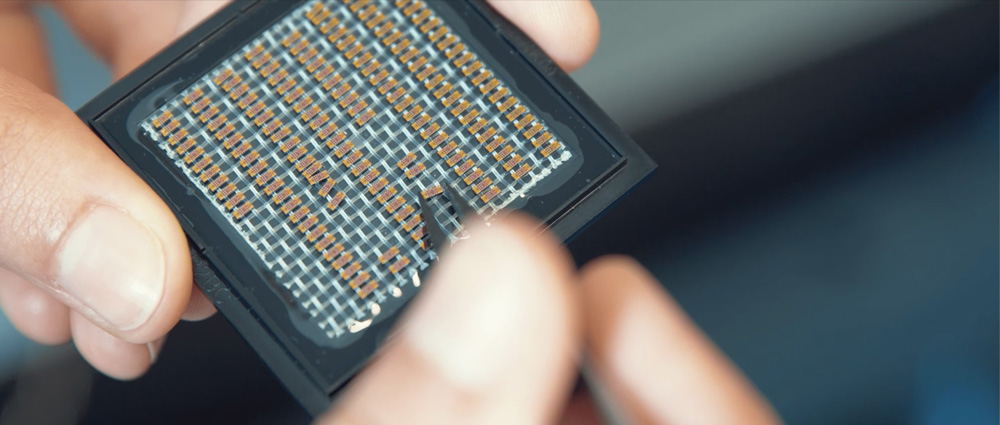News: Optoelectronics
23 January 2023
TRUMPF Venture invests in InP PIC-based quantum technology startup Quside
TRUMPF Venture of Ditzingen, Germany is making a multi-million euro investment in startup Quside of Castelldefels near Barcelona, Spain.
Founded in 2018 after several years of R&D at the Institute of Photonic Sciences (ICFO) in Barcelona and currently having about 30 staff, Quside’s core product is a high-performance random number generator on an indium phosphide (InP) photonic integrated circuit (PIC) chip that is compatible with common semiconductor manufacturing (CMOS) processes, enabling easy mass production.
Using the quantum mechanical properties of light, the chip produces completely random number combinations very quickly (at Gb/s). This makes it possible to improve the encryption of messages enormously, enabling the encryption of messages that even computationally powerful quantum computers cannot decrypt.

Picture: Quside’s indium phosphide PIC chips.
In addition to encryption, Quside’s random number generator also enables faster and more energy-efficient calculation of simulations, such as risk analyses in the financial sector or weather forecasts. For example, traffic forecasts can be calculated up to ten times faster, and energy consumption is up to 20 times lower. Such simulations are also used by the insurance industry, the logistics sector and the pharmaceutical industry.
There is already great demand in industries where security plays a major role. Quside’s first customers are from sectors with high-security requirements, such as aerospace. But it is expected that the technology could also play an increasingly important role in private devices. The firm hence plans to expand into the consumer market in the coming years, to use chips to increase the security of smartphones, tablets or even vehicles.
It is forecasted that the global market for random number generators could grow to €7–10bn in 2026.









